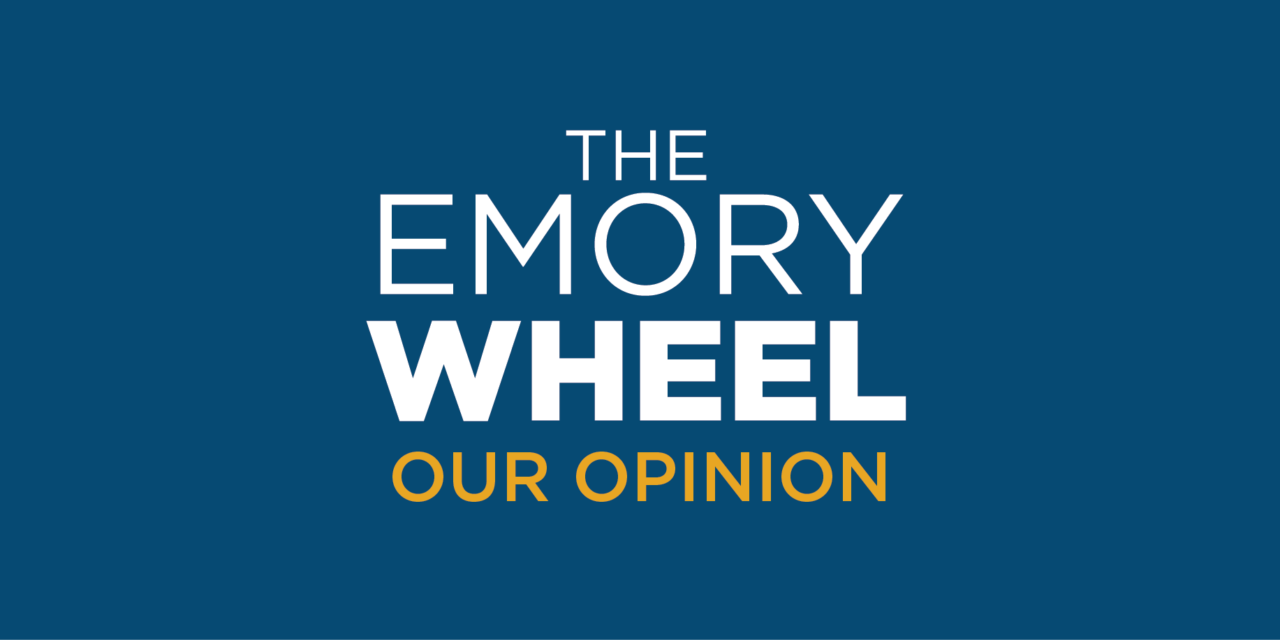Faculty members in the College of Arts and Sciences have rejected a motion of a “no confidence” against University President James W. Wagner. The vote was 201 to 133, with 60.2 percent of the faculty voting against the motion of “no confidence.”
We at the Wheel believe that this process deserves a nuanced analysis of small but important semantical distinctions. The 39.8 percent who supported the “no confidence” motion may not be a majority, but it does reveal a very large number of faculty who feel Wagner is no longer fit to lead. The 60.2 percent of those who chose to vote against the motion of “no confidence” still may not be completely pleased with the current direction of the University. It is an important distinction to note that these faculty do not have full confidence, but rather, do not have “no confidence.” The ballots themselves were phrased in this way, depicting slight ambiguity in what is meant by a vote for or against “no confidence.” Due to the phrasing of the ballots we cannot be 100 percent sure to what degree the 60.2 percent have confidence in Wagner.
We at the Wheel recognize that Wagner is proposing ways in which the University can productively move forward through his email, which was sent out yesterday. However, we urge Wagner to start making more active movements to try and fix the problems of those who voted “no confidence.” We also hope that the results will not be interpreted as a comprehensive statement on faculty sentiment, seeing as a third of the faculty chose to abstain. The vote should just be used as a way to figure out how to progress and change the things that are concerning to all faculty and members of the University, students included.
Further, the vote should be used as an impetus to confront a range of issues that concern all community members, both students and faculty.
So, how do we move forward? Just because Wagner did not get a majority “no confidence” vote does not mean the root-cause of all issues are solved. We at the Wheel need Wagner to address all of the problems at the University through pragmatic action. We feel that his email is a very positive start. Votes are used to show ideological stances, especially in this context, and it’s time we start seeing concrete initiatives so the University can move forward. Any solutions proposed should continue through the fall semester. We would like to see legitimate progress by the administration to address and fix the multiple issues that have risen at our University. These issues should not be forgotten but rather used as a way to learn from our mistakes and make this University a better place for all people.
The above staff editorials represent the majority opinion of the Wheel‘s editorial board.
The Emory Wheel was founded in 1919 and is currently the only independent, student-run newspaper of Emory University. The Wheel publishes weekly on Wednesdays during the academic year, except during University holidays and scheduled publication intermissions.
The Wheel is financially and editorially independent from the University. All of its content is generated by the Wheel’s more than 100 student staff members and contributing writers, and its printing costs are covered by profits from self-generated advertising sales.





Propose solutions not just complaints. The Emory Wheel editorial board is crap. They are a perfect example of why the journalism department is a joke and needs to be eliminated.
the Journalism program is not a department, and it’s not affiliated with the Wheel.
“We at the Wheel need Wagner to address all of the problems at the University through pragmatic action.”
a) The president is not responsible for solving all of the problems at the University in general, or the College in particular.
b) Be careful what you wish for. Many would argue that the cuts in the College were the essence of pragmatism.
Shut up Oxtard!
What a brilliant response! I’m sure the Library of Congress will be archiving it post haste.
How strange that Emory gets so upset over Wagner’s comment, yet a huge facility is named after a racist. Robert Yerkes wrote on page 376 in the New World of Science about the intellectual inferiority of the negro and that the negro would never be on par with his white counterpart. Yerkes also writes that northern negroes are mentally superior to southern negroes on page 30 of Army Mental Tests. Is Emory’s ‘outrage’ really about race or more about Wagner himself? If it is race that Emory’s concerned with then it seems selective — otherwise, why does the building still honour a clear racist. Yerkes was a eugenist and actively worked to erase various groups. This is all very strange.
dude, the compromise gaffe was just the cherry on top of wagner’s shit sundae. arresting peaceful student protestors, department cuts being made without following university protocol, and the false reporting of admissions info: these are the real reasons wagner is in this mess.